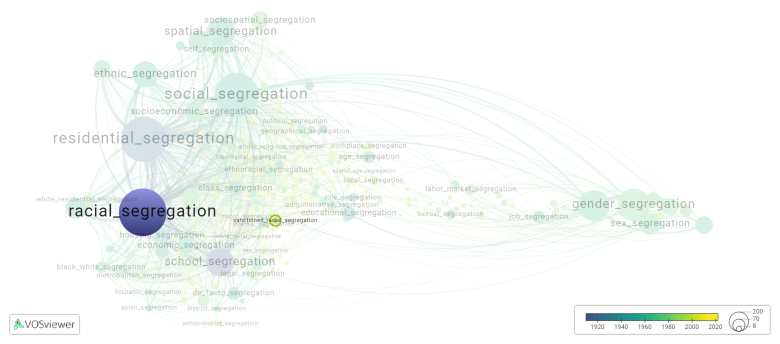Sanctioned racial segregation
Date and country of first publication[1][edit | edit source]
2007
United States
Definition[edit | edit source]
Sanctioned racial segregation refers to the official laws and policies implemented by governments or authorities to separate different racial or ethnic groups in various aspects of life, such as housing, education, transportation, and public facilities. These policies were prevalent in many countries throughout history, especially during periods of systematic racial discrimination.
One notable example of sanctioned racial segregation is the system of apartheid in South Africa, which was implemented from 1948 to 1994. Under apartheid, various laws were put in place to enforce racial separation, including the establishment of separate residential areas, schools, hospitals, and public facilities for different racial groups. The system aimed to maintain white minority rule and suppress the rights and freedoms of non-white populations, especially Black South Africans.
Another well-known example is the Jim Crow laws in the United States, which were implemented from the late 19th century until the mid-20th century. These laws mandated racial segregation in public spaces, such as schools, restaurants, theaters, and public transportation, primarily targeting African Americans. These discriminatory measures aimed to maintain white supremacy and perpetuate racial inequality in the United States.
While sanctioned racial segregation has been widely condemned as a violation of human rights and equality, its effects continue to be felt even after its legal abolition. The legacy of these policies can still be seen in ongoing racial disparities and inequities in societies worldwide.
Synonyms[edit | edit source]
The following terms are synonymous with sanctioned racial segregation:
sanctioned race segregation.
References and literature addressing this segregation form under these synonymous terms can be found below.
See also[edit | edit source]
Related segregation forms[edit | edit source]
Sanctioned racial segregation is frequently discussed in the literature with the following segregation forms:
racial segregation, legal segregation

This visualization is based on the study The Multidisciplinary Landscape of Segregation Research.
For the complete network of interrelated segregation forms, please refer to:
References[edit | edit source]
Notes[edit | edit source]
- ↑ Date and country of first publication as informed by the Scopus database (December 2023).
At its current state, this definition has been generated by a Large Language Model (LLM) so far without review by an independent researcher or a member of the curating team of segregation experts that keep the Segregation Wiki online. While we strive for accuracy, we cannot guarantee its reliability, completeness and timeliness. Please use this content with caution and verify information as needed. Also, feel free to improve on the definition as you see fit, including the use of references and other informational resources. We value your input in enhancing the quality and accuracy of the definitions of segregation forms collectively offered in the Segregation Wiki ©.
Sanctioned racial segregation appears in the following literature[edit | edit source]
Galletta A., Cross Jr. W.E. (2007). Past as present, present as past: Historicizing black education and interrogating "Integration". Contesting stereotypes and creating identities: Social categories, social identities, and educational participation, 15-41. Russell Sage Foundation.https://doi.org/
Maultsby P.K. (2016). Dayton Street Funk: The Layering of Multiple Identities. The Ashgate Research Companion to Popular Musicology, 259-282. Taylor and Francis.https://doi.org/10.4324/9781315613451-22
Kirkland F.M. (2017). Kant on race and transition. The Routledge Companion to the Philosophy of Race, 28-42. Taylor and Francis.https://doi.org/10.4324/9781315884424
Back C.J., Hsin S. (2019). "Affirmative action" and equal protection in higher education. Key Congressional Reports on Education, 1-69. Nova Science Publishers, Inc..https://doi.org/
Mickelson R.A., Ayscue J.B., Bottia M.C., Wilson J.J. (2022). The Past, Present, and Future of Brown’s Mandate: A View from North Carolina. American Behavioral Scientist, 66(6), 770-803. SAGE Publications Inc..https://doi.org/10.1177/00027642211033296
